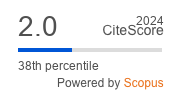Diagnosis and Management of Problematic Severe Asthma
DOI:
https://doi.org/10.5644/ama2006-124.291Keywords:
Paediatric, AsthmaAbstract
This review will outline an evidence-based approach for diagnosing and managing children with problematic severe asthma (PSA). Children with PSA have uncontrolled asthma symptoms, despite maximal prescribed asthma treatment. These children have high morbidity and mortality and should be referred for specialist respiratory assessment and management. The first step in the assessment of a child with PSA is confirming the diagnosis of asthma using objective evidence. Following this, an assess- ment of inhaled corticosteroid adherence and a multi-disciplinary team approach is essential for separating difficult asthma (DA) from severe therapy resistant asthma (STRA). The majority of children have DA which entails uncontrolled asthma symp- toms due to underlying modifiable factors including poor treatment adherence, poor inhaler technique, exposure to environ- mental allergens, co-morbid conditions and psycho-social factors. Approximately 20% of children with PSA have STRA, and have persistent asthma symptoms despite good treatment adherence and correction of modifiable factors. Children with STRA typically have multiple and severe aeroallergen sensitization, eosinophilic airway inflammation and high fraction exhaled nitric oxide (FeNO). Further investigation of children with STRA includes an assessment of systemic steroid responsiveness, this is important for confirming the diagnosis of STRA and guiding the choice of additional treatment. Biologics are an add on (immune targeted) therapy for STRA. The current biologics used in children target the T2 helper (Th2) pathway mediating eosino- philic, allergic asthma.
Conclusion. Future clinical trials of biologics in children will be essential to help identify childhood specific biomarkers and to decide which biologic is best for which individual child.
Downloads
Published
Issue
Section
License
Copyright (c) 2020 Elizabeth Scotney, Sejal Saglani

This work is licensed under a Creative Commons Attribution-NonCommercial 4.0 International License.





